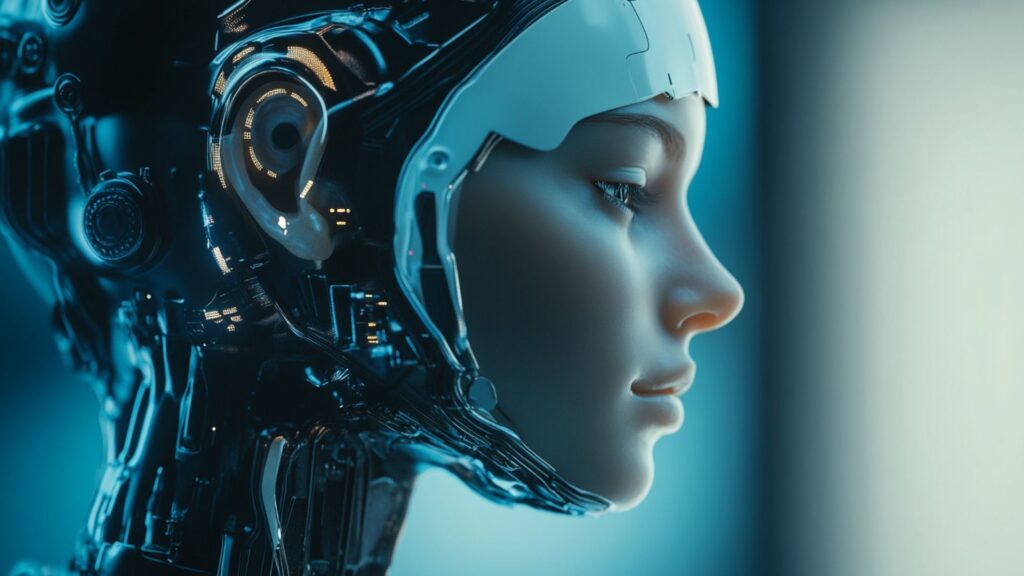AI Trainer Explained: Roles, Skills, and How to Become an Artificial Intelligence Trainer

AI is revolutionizing service delivery across multiple industries. Artificial intelligence is transforming businesses and enabling teams to make better decisions and develop improvement strategies. Today, AI training has become an increasingly popular career path. AI trainers can drive business growth through properly implemented models.
An AI trainer is a skilled specialist who manages artificial intelligence models. Their work includes correcting results, modeling conversations, and conducting training sessions. Trainers work with chatbots to improve customer interactions and enhance service quality.
This profession is gaining significant popularity in 2025. Trainers are transforming businesses and achieving remarkable success. Teams can utilize advanced tools for improved customer service. Trainers gain experience working with different tools depending on business needs. Understanding the AI trainer job description is crucial for career development and growth.
Trainers serve as the bridge between raw data and meaningful, actionable results. This profession is revolutionizing multiple industries. More people are interested in learning how to become an AI trainer. Specialists create proper frameworks that help machines understand work principles. Creativity, innovation, and intelligence play crucial roles. Experience helps create unique development environments and opportunities.
What Is an AI Trainer and Why Is It an Emerging Career?
The introduction of artificial intelligence and machine learning drives business success. Today, AI is widely integrated into many established industries. This field is vital for society and offers numerous services. An important question arises. "What is an AI trainer?" and what role do they play?
An AI trainer is a qualified professional with specialized knowledge for system development. Trainers control and manage the training process of AI systems. They adjust system training to improve company performance and outcomes. Trainers differ from programmers because they focus on enhancing existing results. Various precision systems are used to build effective strategies. Trainers are extremely important for integration across diverse businesses.
AI chatbot trainers are gaining tremendous popularity for several reasons:
- Continuous Result Monitoring. Specialists constantly monitor results when working with AI systems. They review various responses and information generated by artificial intelligence. Specialists investigate machine learning and chatbot issues while identifying errors and detecting incorrect content.
- Result Management. Trainers manage work outcomes effectively. They possess extensive knowledge and use advanced techniques to correct model behavior across different applications.
- System Functionality. Artificial intelligence trainers ensure that tools remain functional and practical. They expand human capabilities while reducing human error factors. Trainers ensure that AI systems complement rather than replace human workers. This combination builds scalability across multiple industries. Additionally, trainers maintain system performance by conducting regular assessments and implementing necessary updates to keep AI models current with evolving business needs and technological advances.
- Feedback and Logic. Trainers provide feedback and improved logic for various tasks. They help systems understand subtle intentions and emotions. Trainers are integral to correct model data for effective teamwork. They also provide cultural awareness and context aligned with company guidelines.
How Is AI Trained: Human vs. Machine Learning Processes
Today, the critical question remains "how is AI trained?" The process is unique, engaging, and productive for achieving success. This combination helps reach new performance levels and maintain proper transformation. The process involves algorithms processing millions of data points. During this time, humans control the process, investigate internal problems, and correct issues. This combination improves results through safety, accuracy, and consistency.
Here is a key comparison between automated ML model training and human-assisted training:
- Automated ML Model Training. Patterns are detected through massive datasets including images, language, and text. Unlike human-assisted training, this approach offers improved scalability and speed. Algorithms optimize predictions and minimize errors. The key limitation is potential bias and incorrect results without human supervision.
- Human-Assisted Training. Trainers review responses, correct processes, and adjust results accordingly. The advantage is providing feedback to improve future predictions. Benefits also include awareness, ethics, and reliability that only humans can provide. Disadvantages include the need for extensive specialist experience and time-intensive work processes. However, human oversight remains crucial for maintaining quality standards and ensuring AI systems operate within ethical boundaries. Trainers must balance efficiency with thorough evaluation to achieve optimal results while preventing potential biases from affecting system performance.
Types of AI Trainers: From Chatbot Trainers to Data Annotators
Artificial intelligence offers many benefits for companies seeking success. AI implementation has increased demand for qualified specialists to control, adapt, and optimize results. Skilled chatbot trainers apply their expertise to effective AI utilization. Good specialists help teams adapt to technological changes.
Empowering roles with AI creates technically powerful tools. The process becomes convenient, ethical, safe, and improved for users. Understanding different trainer types and their roles across industries is helpful. Here are the key characteristics:
- AI Chatbot Trainer. These specialists excel at training conversational AI. They focus on understanding context and intentions during interactions. Specialists provide effective communication regarding chatbot responses for improved accuracy. Empathy and ethical guidelines are present for better responses in customer support and other areas.
- Advanced AI Data Trainer. These specialists are essential for working with text, audio, and images while performing complex tasks. They conduct work related to image labeling and data classification with specialized tags. Trainers take responsibility for reliability when working with machine learning models.
- AI Instructor. Instructors have different obligations that include interacting with people and training them. They train large groups and increase understanding of AI systems. Instructors are essential for effective AI system implementation and team integration.
- Data Processing Specialists. Labeling, reviewing, and annotating play essential roles in preparation. This includes tagging and improving data labeling for scaling. It's important to review AI system data and note errors and biases. Even early in development, weak points and mistakes are identified, improving future results.
Key Responsibilities: What Does an AI Trainer Actually Do?

Qualified experts are essential for improved performance. Experts play vital roles in researching AI system functionality. Expert tasks involve combining data with training and providing feedback. This focuses on accuracy, data fairness, and effective AI operation. Here are key responsibilities of skilled AI data trainers:
- Data Labeling. Data labeling involves assigning categories and helping recognize patterns. Experts enable AI to understand context and label objects in datasets.
- Result Validation. Result validation helps evaluate predictions and detect patterns. Experts identify errors, provide correct answers, and reveal bias.
- Training Set Curation. Dataset management involves organizing high-quality datasets. This process is reliable for training AI models to balance accuracy and minimize bias.
- Chatbot Training. AI data trainers train chatbots to recognize intent. Specialists test dialogues to improve user experience and satisfaction.
- Quality Assurance. Trainers constantly check system operations and monitor for errors or deviations.
Good specialists ensure organizations adhere to strict ethical standards. They implement comprehensive testing protocols to verify system reliability and performance consistency. Quality assurance involves documenting issues, tracking resolution progress, and establishing preventive measures to avoid recurring problems. Trainers also collaborate with development teams to implement improvements and maintain detailed records of system modifications for future reference.
Top Skills Required to Become a Great AI Trainer
Becoming a professional trainer requires skills and continuous learning. For success, trainers must possess extensive knowledge and maintain productivity. Trainers must combine effective management with safety and ethics. Here are main skills that professional AI trainers should have:
- Critical Thinking. Trainers must have critical thinking skills to offer optimal solutions for companies. Critical thinking is necessary to reduce bias and ensure logical, accurate outcomes.
- Understanding of NLP and ML. Good trainers must understand machine learning and natural language processing. These skills enable trainers to effectively process and tune models.
- Annotation Tools. Annotation tools are necessary for improved platform work. Trainers use text, audio, and images for accurate tagging. This process significantly impacts AI training quality.
- Communication and Writing Skills. AI model trainers must have strong communication and writing abilities. Feedback and instructions are essential for effective work. Chatbot professionals must maintain ethics and usability for future applications.
- Logical Reasoning. Logical thinking is a key advantage for structured decision-making. Professionals can make correct decisions while considering multiple problems and errors. Logical reasoning ensures consistency when managing decision-making systems.
AI Training: Do You Need a Degree or Certification?
Today, many people wonder "how to become an AI trainer?" Mastering this profession requires dedication and patience. A degree may not always be necessary for career advancement. Most employers value excellent experience alongside formal education. Skills, certifications, and practical experience can be beneficial.
Here's what to consider when pursuing AI specialist training:
- Formal Education. Education is valuable for building experience and establishing strong foundations. Education in computer science and psychology helps apply knowledge effectively. Many employers don't require degrees for chatbot training or data tracking positions.
- Certifications. AI special training requires certifications specialized in AI programs. Many established programs provide targeted knowledge for improved work experience. Certifications help employers understand skills of candidates without degrees.
- Online Courses. Online courses are excellent ways to demonstrate knowledge. Well-known platforms offer training in machine learning, data labeling, and natural language processing. Online courses are flexible and affordable for acquiring necessary knowledge.
- Real-World Experience. Practical experience plays vital roles through hands-on practice. AI trainers with real-world experience can train chatbots and evaluate different models. Proof of skills is always valued more and provides advantages with employers. Working on actual projects allows trainers to understand industry-specific challenges and develop practical solutions. Experience with diverse AI applications across different sectors enhances problem-solving abilities and increases marketability in the competitive job market.
How to Become an AI Trainer: Step-by-Step Guide

Anyone can start a trainer career by following specific guidelines. Following practices and requirements will help develop expertise in this field. Several practical steps will create realistic goals and combine technical advantages. Professional trainers have unique abilities to achieve high goals through experience.
Here is a step-by-step guide on becoming an AI trainer:
- Learn the Fundamentals. Machine learning, natural language processing, and chatbot basics are mandatory. Everyone can take advantage of free courses and training to improve skills.
- Master Tools. Future AI trainers should learn tools for reviewing chatbot performance. High-quality tools help focus on learning and training across different platforms. Users can access open-source codes for collaboration.
- Create a Portfolio. Building a portfolio plays a vital role in documenting projects. Professionals can document chatbot evaluations and create sample datasets to build their portfolio.
- Start with Entry-Level Work. The first step involves securing entry-level positions. Numerous freelance opportunities are available to gain experience and expand knowledge. Interested trainers can test chatbots and tag different content. Many platforms specialize in AI and provide various benefits.
- Continue Learning. Understanding "how is AI trained?" is essential for experience growth. The key step is improving skills and taking various courses. Future specialists can learn how AI and machine learning function. Staying aware of trends and news helps enrich knowledge bases. Professional development should include attending industry conferences, participating in online communities, and engaging with research publications to stay current with emerging technologies and best practices in AI training methodologies.
Industries Hiring AI Trainers in the USA and Globally
Many industries are interested in working with experienced AI trainers. Companies use AI-based systems integrated into their businesses. This process encourages companies to work with skilled specialists with experience.
Here are characteristics of key industries needing AI specialists:
- Technology Companies. Technology companies such as Google and Microsoft constantly seek skilled specialists. Companies continuously improve models and recruit employees for development. Companies want specialists who understand programming, chatbot work, and AI assistants.
- Research Labs and Universities. Laboratories and universities utilize skilled advanced AI data trainers. Knowledgeable specialists control experiments and annotate datasets. Specialists check for errors and study processes from development to final results.
- AI Startups. Interesting AI startups specialize in developing tools. These startups are relevant for chatbot and automation platform work. Startups rely on skilled specialists for constant data processing. Specialists create real scenarios and various tasks.
- Content Moderation Firms. Companies engage in social media moderation and security. Companies want to work with experienced AI trainers for effective interaction and results. Specialists can verify data confidentiality and maintain security.
AI Trainer Jobs. Where to Find Them and What They Pay
Today, demand for experienced professionals continues growing steadily. Many companies seek dedicated employees with strong experience. Companies offer good conditions for people with knowledge and certification. Whether working with data annotation or chatbot training, affordable opportunities exist for everyone to try this field and gain experience.
Here's key information about where to find work:
- AI Companies. Scalable AI companies focus on data labeling. Experienced professionals can improve models and control security and workflow.
- Remote Opportunities. Remote work is equally important. Specialists can use entry-level positions and flexible schedules. Specialists can work as annotators and control task processes.
- Freelance Marketplaces. AI instructors can use freelance marketplaces offering excellent services. Instructors can teach other users how to work with AI and chatbots.
- Job Platforms. Many job listings can be found online. Google and Amazon offer interesting opportunities and describe excellent positions. Teams recruit experienced trainers for entry-level work.
Several contract types exist for future employees. Key ones are freelance employment and full-time work. Freelancing is an excellent way to adjust schedules and manage time. Freelancing is usually project-based and flexible for new users. Full-time work offers benefits and requires experience from candidates with training backgrounds.
Depending on the company, skilled AI trainers can receive different salary ranges. This depends on market demand, experience, and knowledge levels. Here are key salaries according to positions:
- Entry-Level. Entry-level data scientists earn approximately $50,000 per year. Freelancers can have initial hourly wages and grow in this field.
- Advanced Specialists. Advanced specialists with excellent experience earn up to $90,000 per year. Experience plays vital roles in chatbot work and performance tracking. Employees also monitor AI models and maintain security. Senior positions may offer salaries exceeding $120,000 annually, particularly in major tech hubs like Silicon Valley, Seattle, and New York. Specialists with expertise in emerging AI technologies such as large language models or computer vision command premium compensation packages that often include stock options and comprehensive benefits.
Skills in high demand, certification, and accountability are equally critical. Portfolios also play roles and affect future specialist salaries. AI's rapid growth is gaining popularity and encouraging new employees. Many companies are ready to invest in high-quality work and research that produces good results. The increasing integration of AI across industries creates abundant opportunities for skilled professionals who demonstrate continuous learning and adaptability to evolving technological landscapes.


